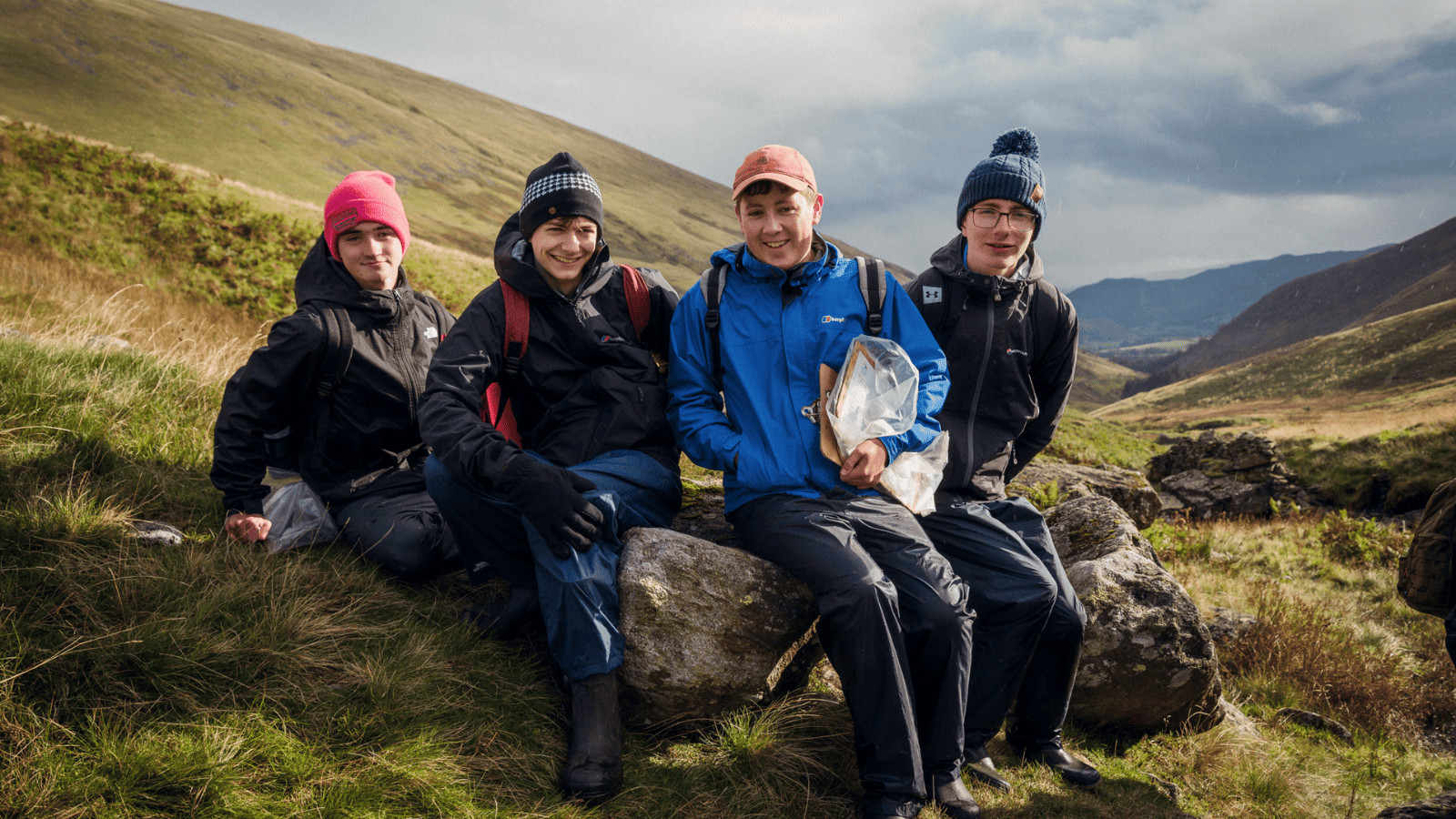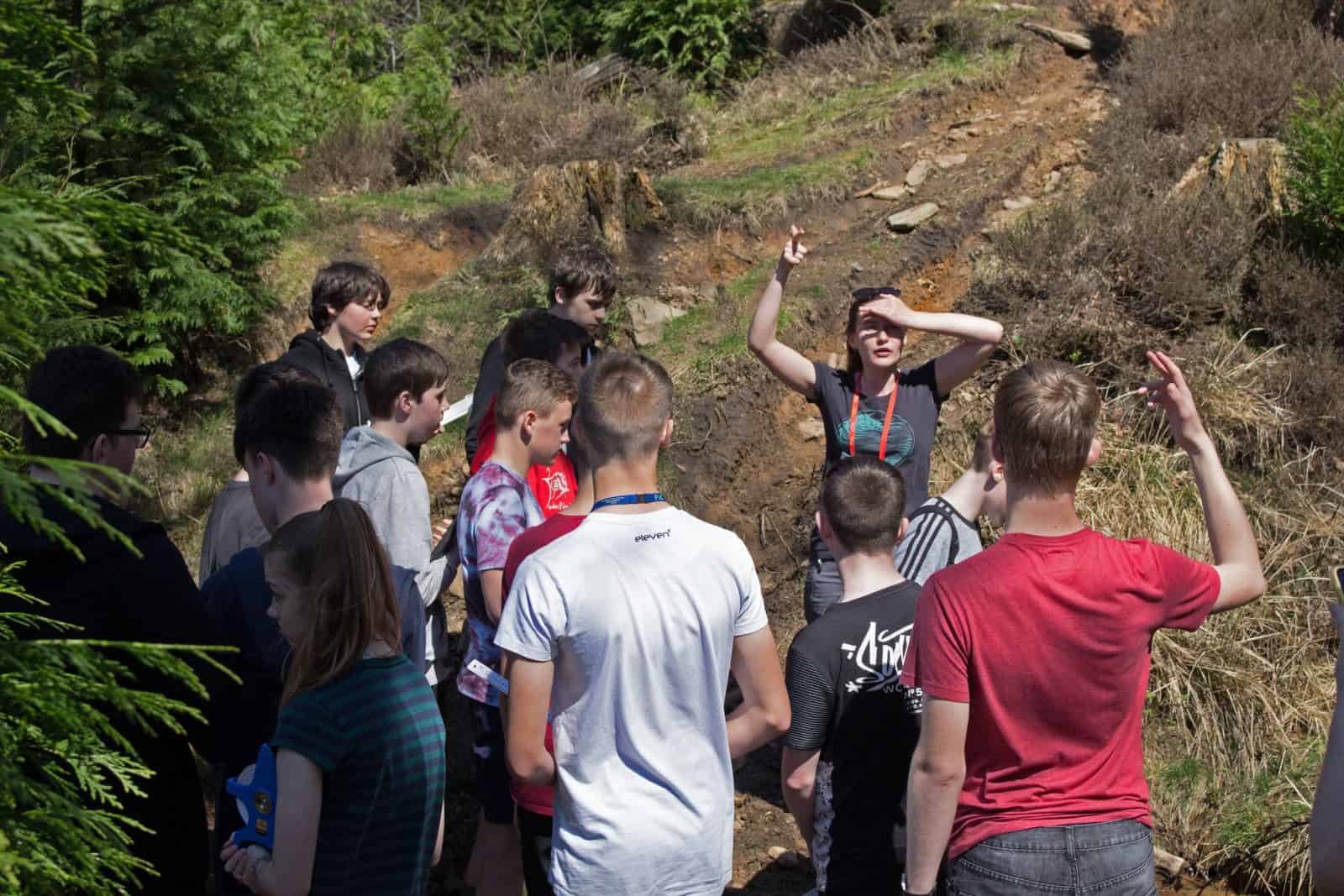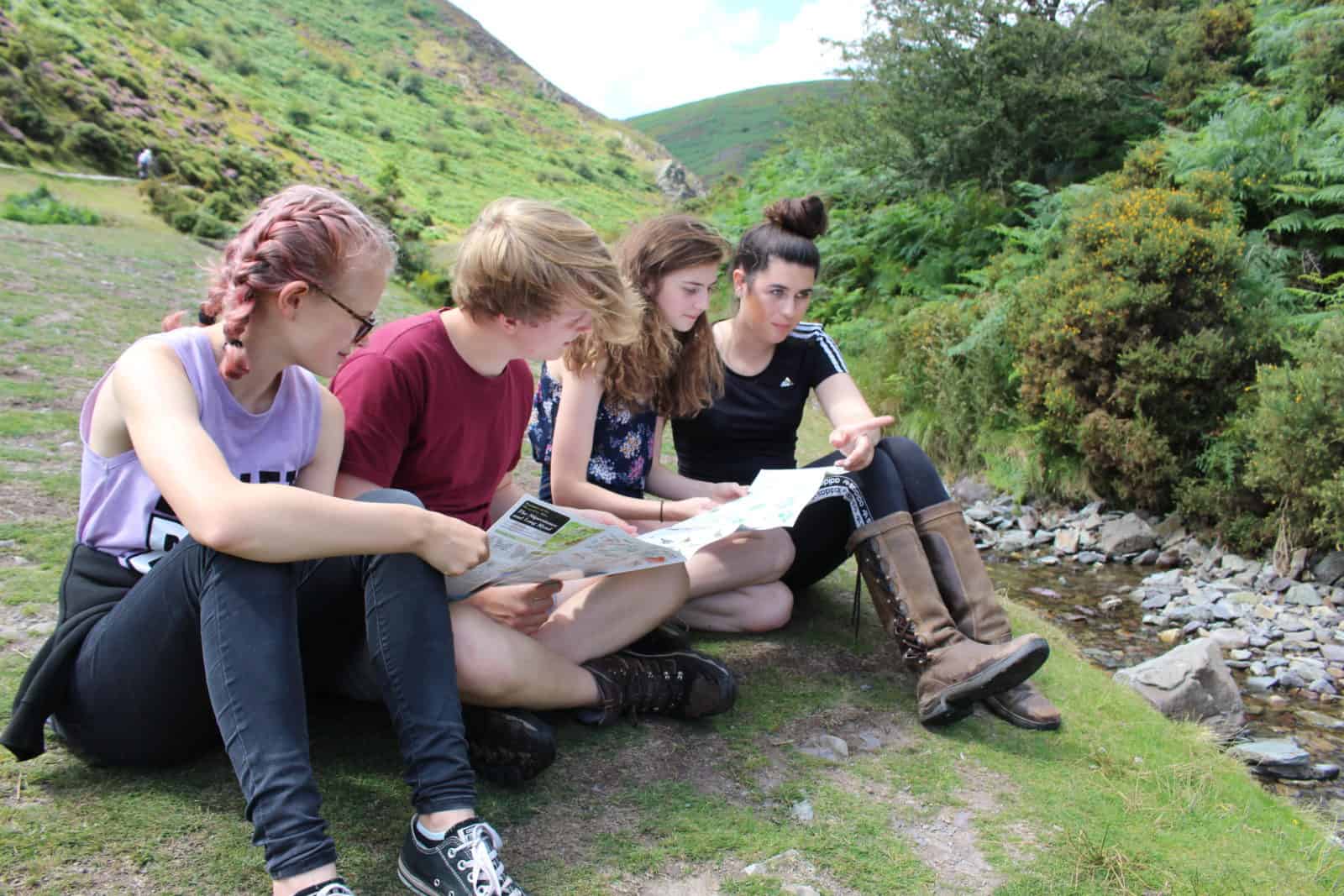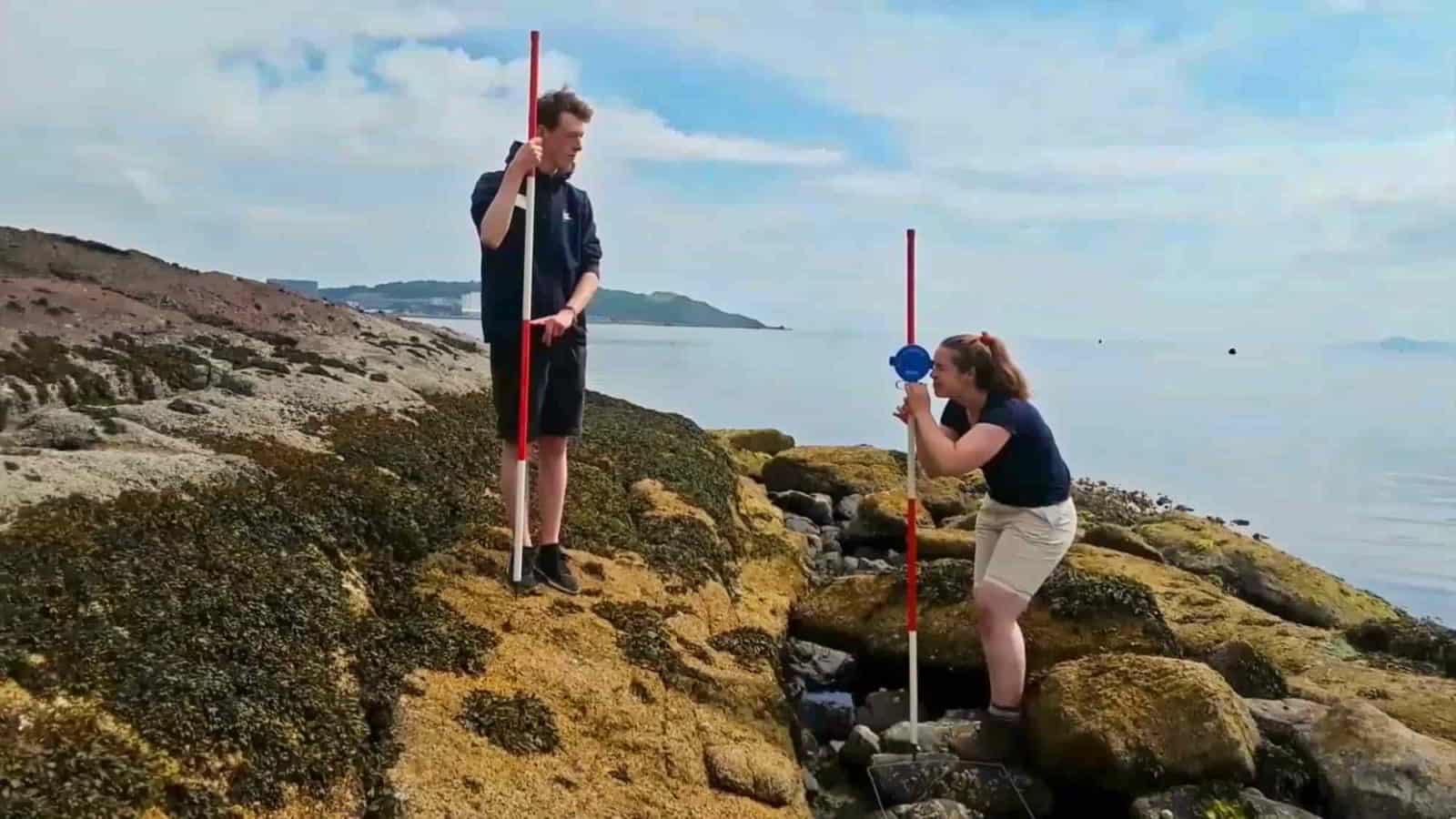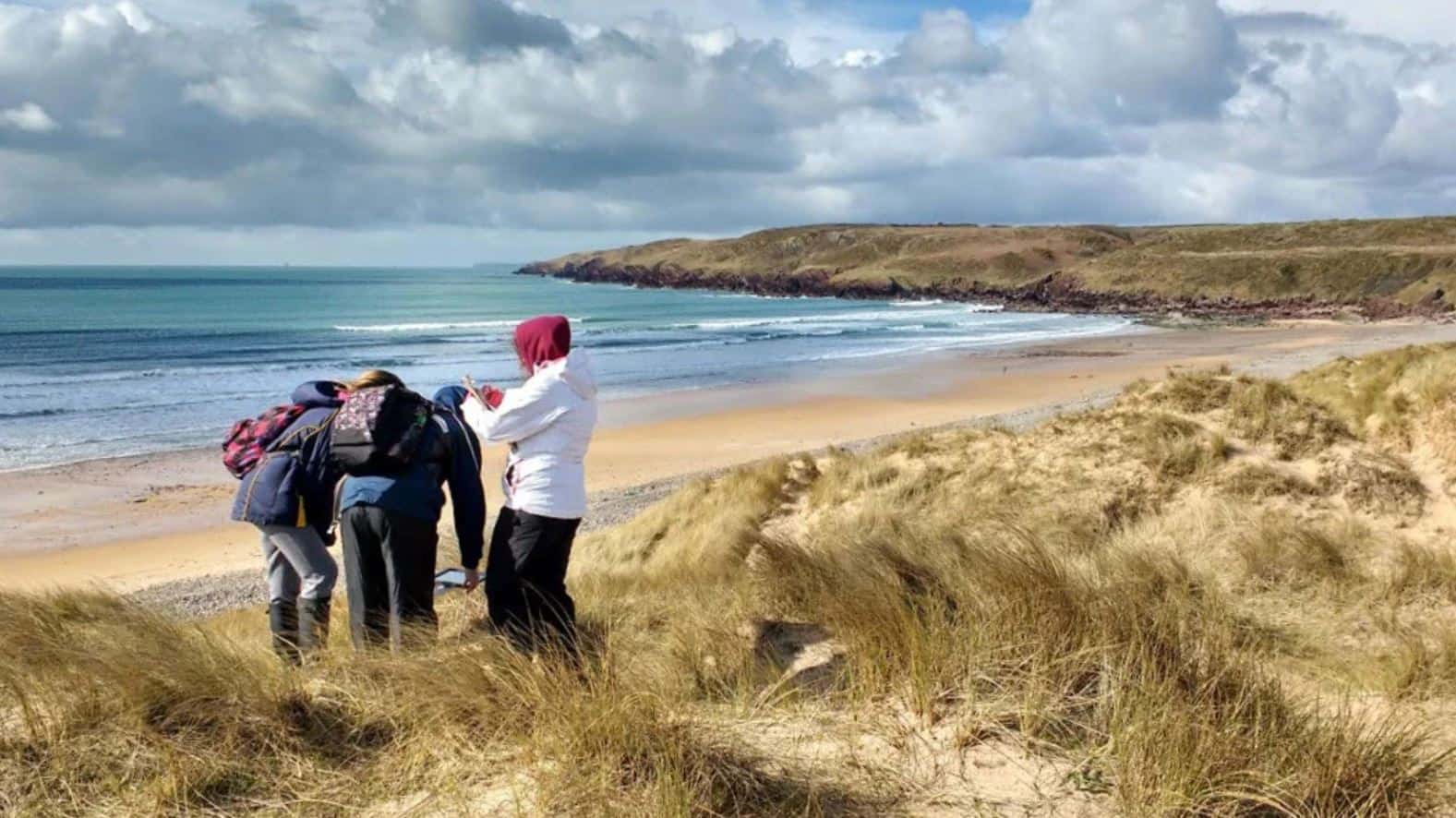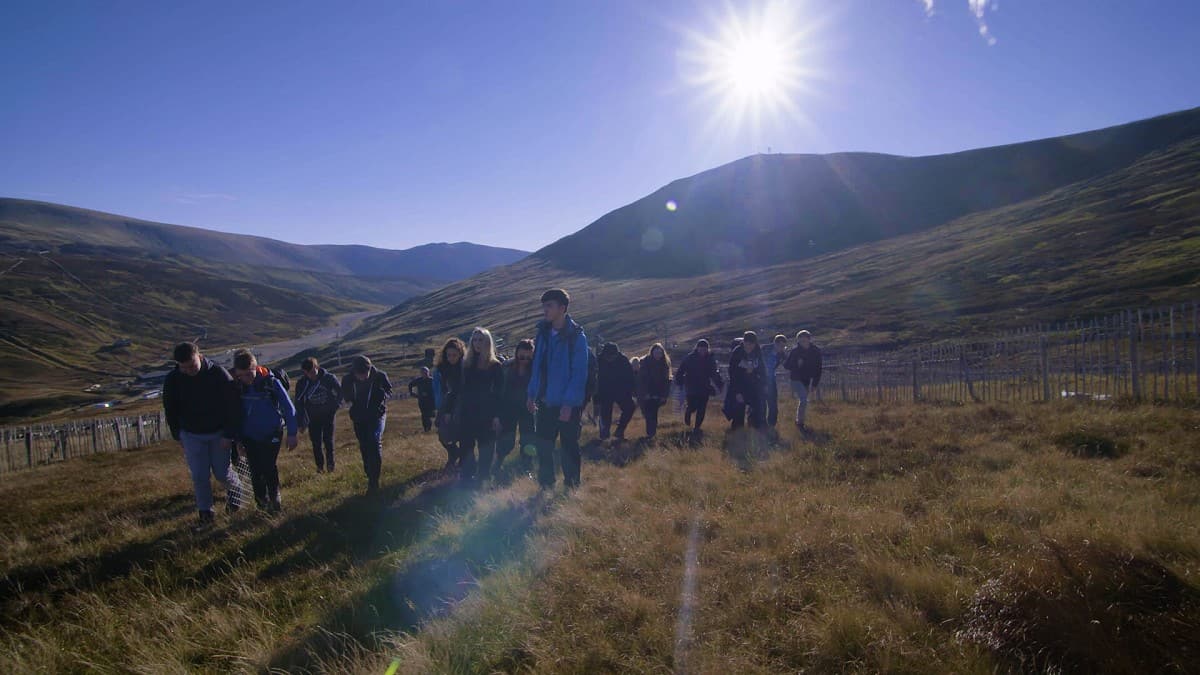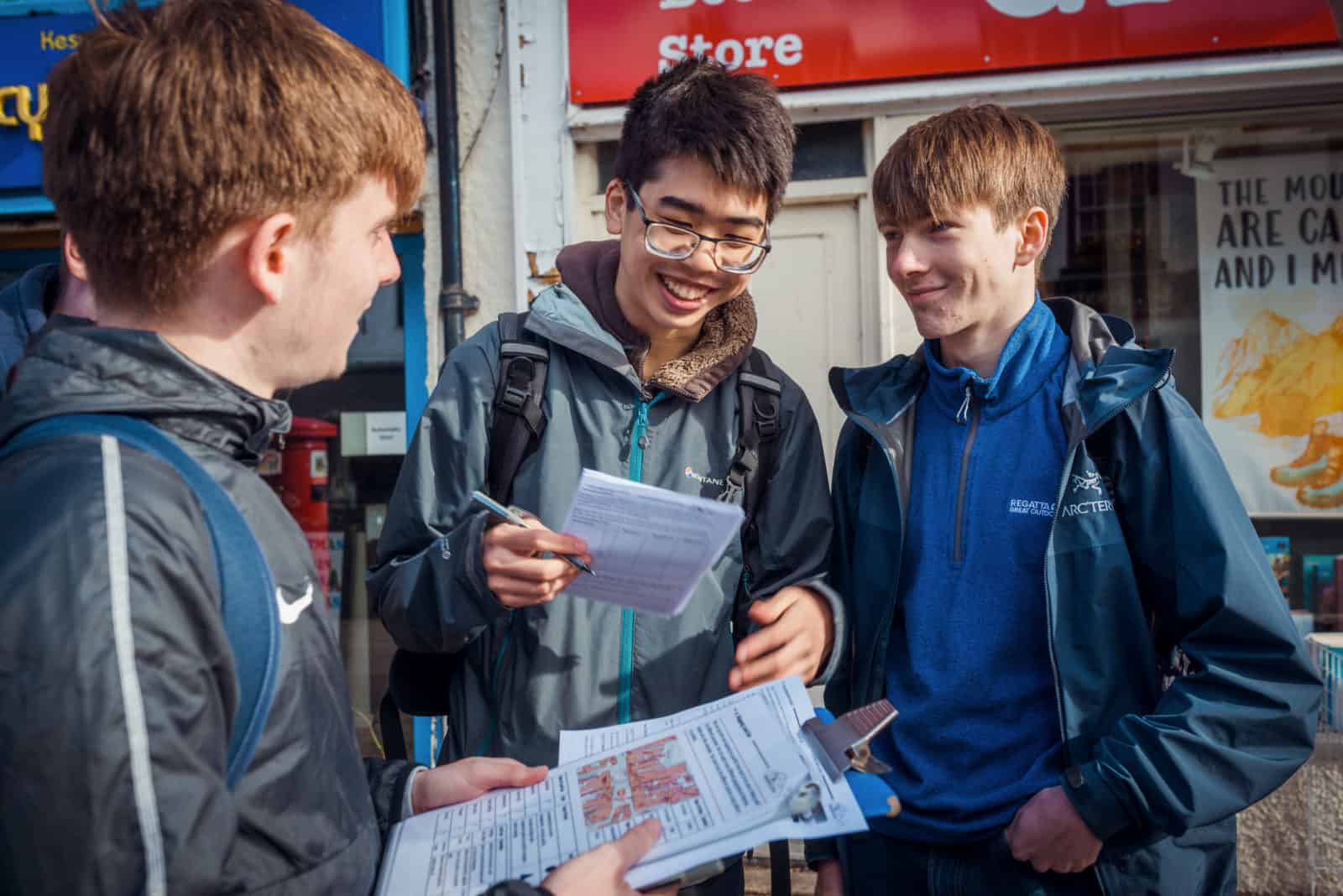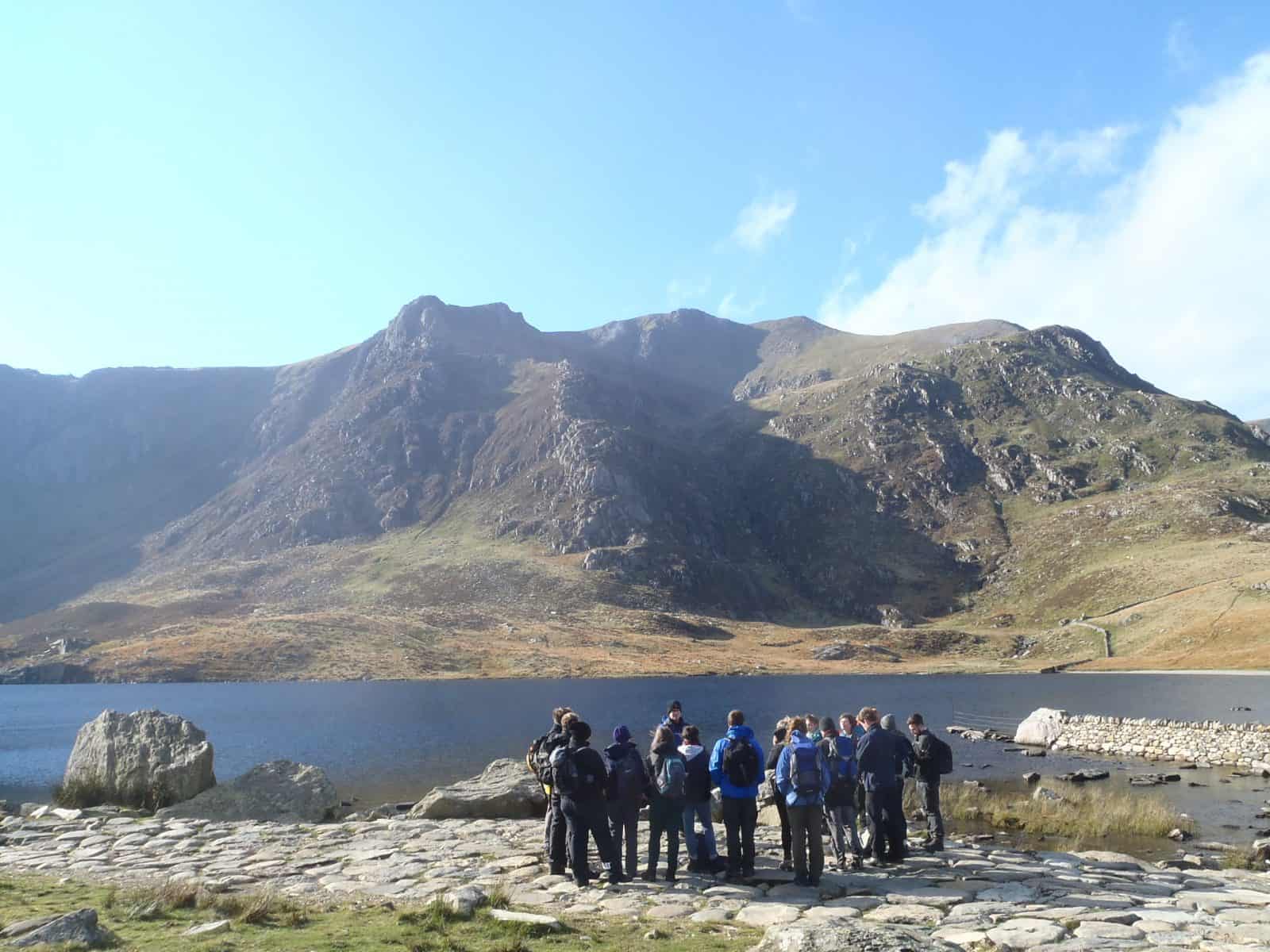Exam Ready Fieldwork
Students are required to undertake two days of investigations as part of the GCSE specifications in contrasting environments -physical and human.
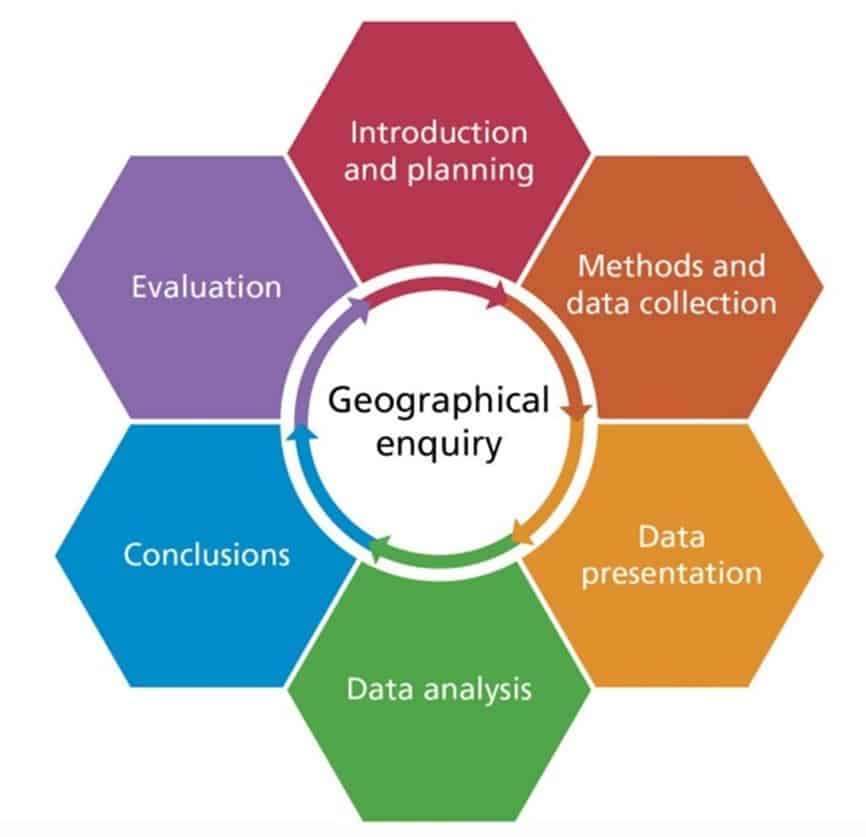
Following the route to enquiry the Field Studies Council offers complete GCSE Geography Fieldwork experiences to prepare students for fieldwork assessments across all specifications.
Delivered by expert, passionate Tutors at the forefront of geography fieldwork tuition using the latest methodologies.
Available at a wide range of contrasting locations across the UK.
At Field Studies Council centres, you can:
- Complete the GCSE Geography Fieldwork requirements within a range of human and physical environments.
- Complete residential courses incorporating full enquiries with skill development and techniques across all 6 stages of the geographical enquiry process.
- Receive support and guidance from expert field tutors throughout your stay.
- Build students’ confidence in their studies with well-paced learning in surroundings that will support their wellbeing.
- Access innovative and creative fieldwork techniques and processes devised by experienced tutors and through collaboration with our strategic partners, such as the Geographical Association, and Awarding Organisations
- Take advantage of options to build in adventure and additional learning opportunities to facilitate broader learning outcomes.
Example Timetable
Example Program:
This example timetable for a 5 day GCSE field course features an academic focus, detailed enquiry follow-up sessions and multiple fieldwork locations.
Our programmes are bespoke to your school, awarding bodies, students requirements.
Please note that to ensure safe and quality learning experiences, the timetables may alter depending on weather conditions and local factors.
Day 1
Morning
Arrive by midday - Arrival and settle into centre
Afternoon
Introduction to the enquiry process Student-led activity to discover why we follow an enquiry process and how to work scientifically.
Evening
Geographical skills Students will use the data collected in the afternoon and secondary data to present their findings and draw conclusions. They will critically reflect on their methods and its validity.
Day 2
Morning
Investigation 1 e.g physical geography Classroom introduction and visit your chosen fieldwork location
Afternoon
Fieldwork Methodology Select from a range of methods by testing out and justifying your chosen options. Data collection with evaluation and critical thinking as a cross-cutting theme. Exam questions are embedded to challenge and apply learning.
Evening
Investigation follow up Data presentation, data analysis, conclusions and evaluation
Day 3
Morning
Investigation 2 e.g. human geography Classroom introduction and visit your chosen fieldwork location
Afternoon
Fieldwork Methodology Select from a range of methods by testing out and justifying your chosen options. Data collection with evaluation and critical thinking as a cross-cutting theme. Exam questions are embedded to challenge and apply learning.
Evening
Investigation follow up Data presentation, data analysis, conclusions and evaluation
Day 4
Morning
Investigation 3 e.g. human or physical geography Classroom introduction and visit your chosen fieldwork location
Afternoon
Fieldwork Methodology Select from a range of methods by testing out and justifying your chosen options. Data collection with evaluation and critical thinking as a cross-cutting theme. Exam questions are embedded to challenge and apply learning.
Evening
Investigation follow up Data presentation, data analysis, conclusions and evaluation
or
Evening adventures Take time to reflect on the course, support wellbeing, build relationships within the group and have fun! Maybe a campfire, team games or orienteering- whatever would suit your group.
Day 5
Morning
Geographical skills - interactions between the human and physical environment Incorporating contemporary issues and geographical skills such as GIS and wider skills, such as debating and problem solving, students will look in more depth at how humans interact with the physical environment. Centre-based activity.
Depart centre at 12.00. Note: For WJEC/Eduqas the topic will be adjusted in accordance with the AO topic requirements for that year
Added value of this course
Develop skills
- Communication | Resilience | Independent thinking | Leadership
- Numeracy | Literacy | Investigative skills | Observation
Enhance Knowledge
- Ask questions.
- Apply knowledge in the real world and make links.
- Make sense of new places and understand our place and role within this.
Enjoy
- Have fun | Make friendships | Connect with nature

